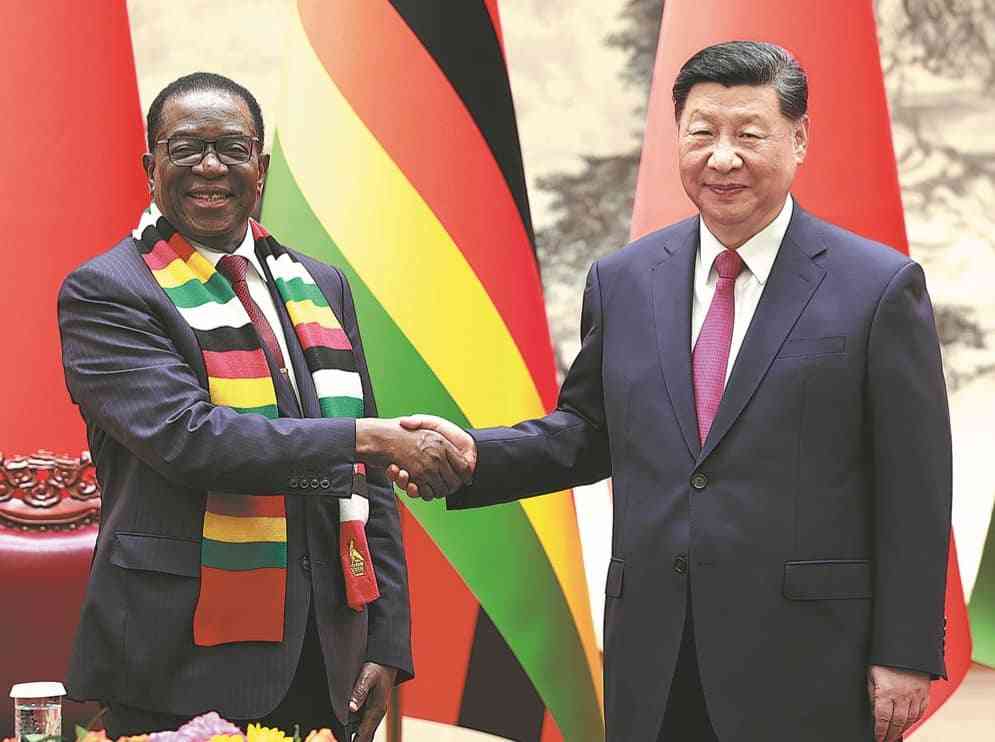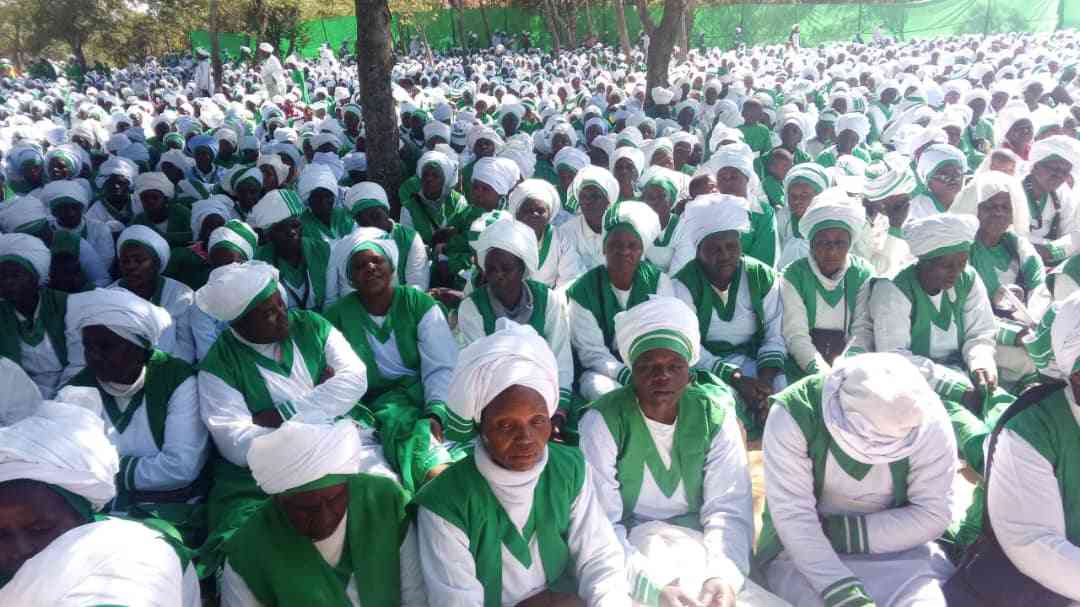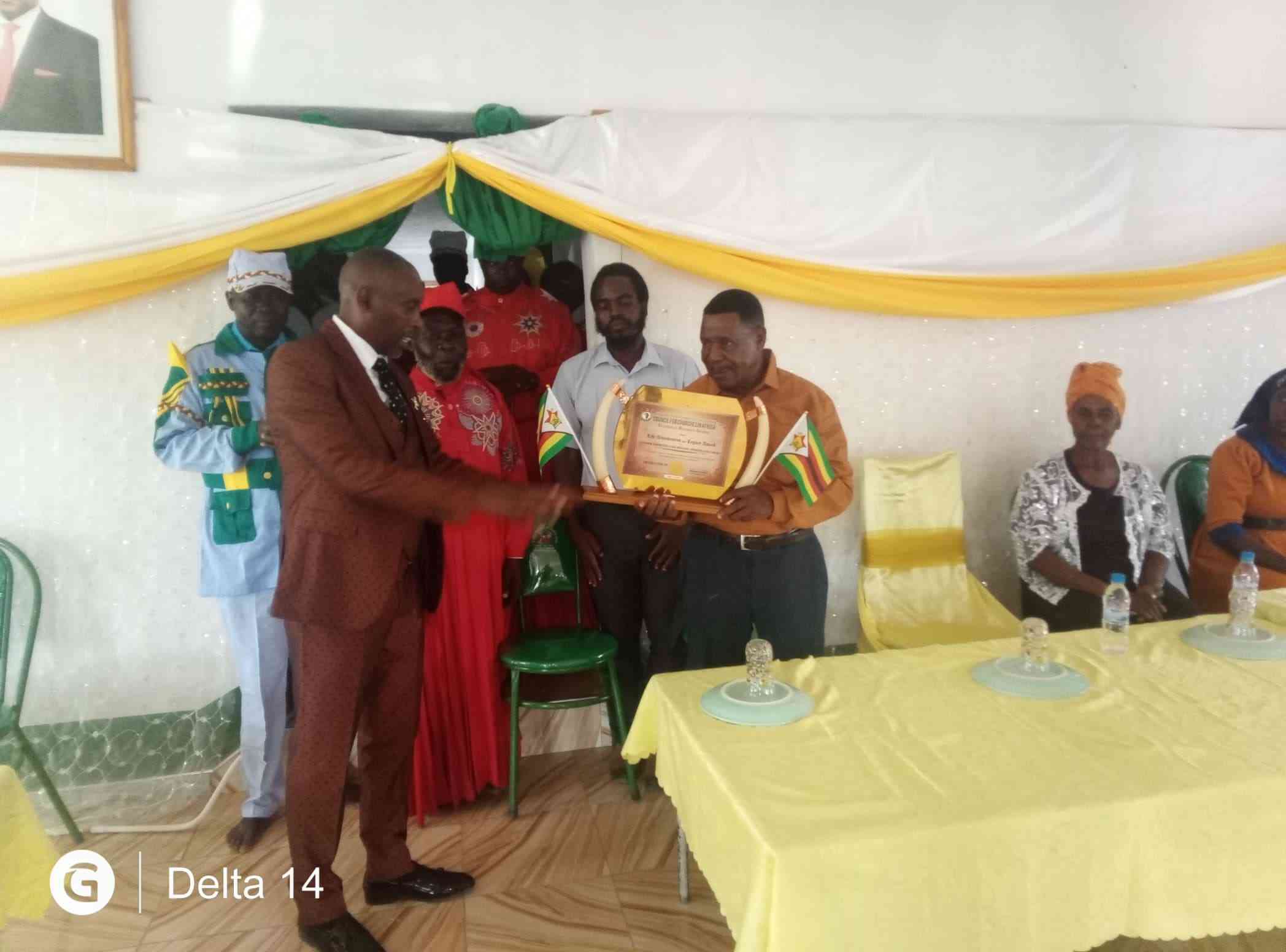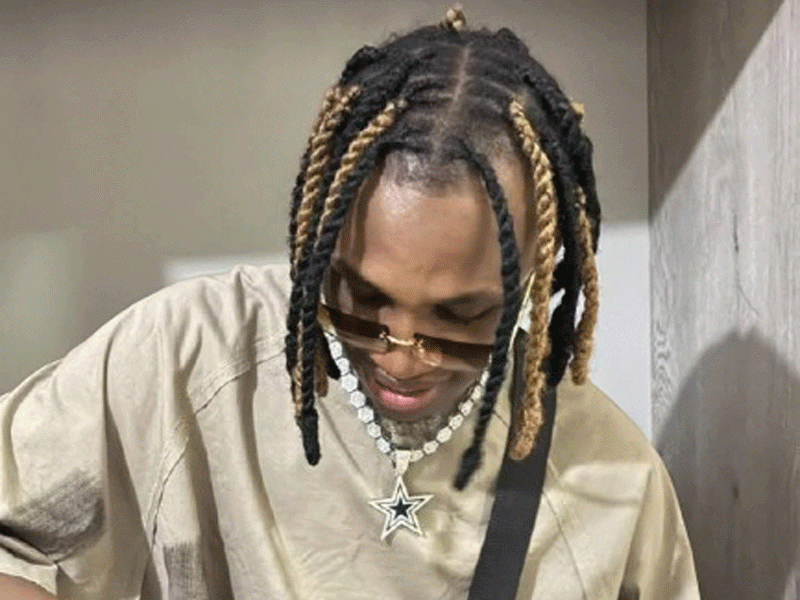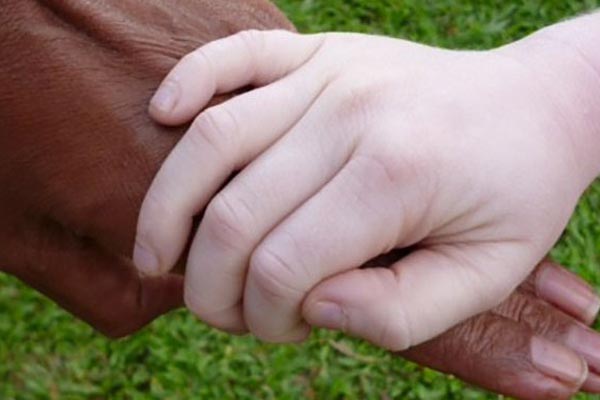

By Lawrence Tichaona Mangenje
Her eyes reveal a naturally confident person, but her hand, with visible blood veins and pale skin, says the opposite. Hesitantly, she offers a handshake, not sure if the gesture will be returned.
The owner of this hand, Sithembiso Mutukura, a 22-year-old University of Zimbabwe social work student with albinism, looks sceptical to start a conversation. This is ordinarily the norm with any other person meeting a stranger, but there is more to her reluctant than the eye can see.
One cannot help, but wonder what causes this seemingly strange behaviour.
The answer lies in how society perceives people with her condition and how she sometimes experienced discrimination at firsthand.
Mutukura recalls how it all started.
“My first day at school was tough because I had been raised by parents who never told me or made me feel like I was somehow different from others. My classmates stared at me oddly during assembly and some even jeered. Some called me names while others spate at me,’’ said Mutukura.
From this day, Mutukura learned that society perceived her as different from other children. Hers was a story of double tragedy. At home, despite the love she got from her parents and siblings, she also faced hostility from extended family members.
- Chamisa under fire over US$120K donation
- Mavhunga puts DeMbare into Chibuku quarterfinals
- Pension funds bet on Cabora Bassa oilfields
- Councils defy govt fire tender directive
Keep Reading
Despite all this, Mutukura has worked to see herself become a top achiever. Early last year, she entered the Miss Albinism beauty pageant, organised to fight discrimination and stigma through beauty. She won and walked away with $85 (bond notes) as prize money.
The paltry prize money made a lot of headlines and was a topical issue, with some taking to social media to blast the organisers of the pageant. Ilizwi263 blog wrote on its Twitter page: “The winner of the Miss Albinism pageant received $85. Seriously????”
Mutukura was not impressed by the prize either.
“The organiser said the sponsors backed off. She also said that I had to be grateful for the opportunities she had created for me to become a queen,” she said.
Many people expressed the sentiment that the prize money did more harm than good in the fight against stigma and discrimination. Mutukura’s story is not isolated, it reads more like the fate of many such persons with the condition of albinism.
It points to the existence of many such cases of discrimination against the albinism community in Africa, a continent where the condition, in some communities, is associated with witchcraft.
This myth is aptly captured in Ben Hanson’s Takadini, a fictitious novel written more than a decade ago, which portrays the plight of people with albinism. In the novel, Hanson tells of the story of a boy born in an African village where albinism was not accepted to the extent that his mother had to flee her village of origin to save her son’s life, two days after he was born.
For 16 years, he was never accepted by his age mates, to the point that they regarded his condition as a rare disorder.
Those in the truth-telling business will agree that the award-winning novel illustrates clearly problems that persons with the condition endure in their daily struggle to fit into society — marginalisation, rejection, intolerance, and loneliness.
While Takadini is a fictional novel, its tone resonates well with the plight of people like Mutukura. Such intolerance exists and is downplayed through subtle remedy gestures as the modelling pageant in question.
The rights of people with disabilities are provided for in the constitution of Zimbabwe under section 22(1), which states that “the State and all institutions and agencies of government at every level must recognise the rights of persons with physical or mental disabilities, in particular, their right to be treated with respect and dignity”.
Despite what the law says, society continues to marginalise and frown upon persons with albinism as shown by the number of the affected.
Janet Mutizhe, a 50-year-old woman with albinism, was told by the man she loved — the father of her three children — that their union was just an experiment.
The script of her life reads like that of Mutukura.
“I faced a lot of discrimination growing up, I would be called by all sorts of names and even at church, people would not want to sit next to me and at school, some teachers would not allow me to sit in front,” said Mutizhe.
So bad was her situation that while walking in the street, people would “spit after passing me, a sign of disgust’’.
When she became an adult after such a torrid childhood, Mutizhe thought happiness had finally located her when she met the man who she thought was the love of her life. But she would later discover how wrong she was.
“After years of living together and being blessed with three kids, my husband told me that our marriage was just an experiment to see the kind of children a person with albinism gives birth to,’’ Mutizhe said.
Immediately after saying these words to his wife, the husband (name withheld) packed his bags and bade farewell.
Even the strongest woman on earth would not survive such a setback and insensitivity.
Many women in the class of Mutizhe bear testimony to these emotional scars.
Sandra Chigavanzira of Victoria Falls tells of her ordeals with classmates at school: “Victoria Falls is very hot and my skin hardly adapts. I had to stop going to school because I was discriminated against and was often reminded how different I was from other students.’’
The fact that people with albinism are perceived differently from everyone else explains why they have arguably low self-esteem.
Rita Muchenje, a psychologist, agrees: “People with albinism, just like people with other disabilities, are mainly perceived as different and deviant. They lack a strong voice for asserting not only their rights, but their very existence. They face discrimination in most areas be it social or political.”
While pageants such as Miss Albinism are noble initiatives if well executed, more needs to be done to change social attitudes and perceptions about those with albinism.
Muchenje adds: “Lack of knowledge complicates the process of inclusion or acceptance of people with albinism. There is a need to break the cycle of discrimination through social awareness campaigns and formation of associations which support and educate people on albinism.”
Gwen Mushonga, the founder of Alive Albinism Initiative, an organisation which advocates for people with albinism, says discrimination is the order of the day for them due to ignorance and myths.
“Society does not really understand what albinism is. It is a genetic condition where a person is born without melanin or the usual skin colour called pigment, in their bodies. Melanin is the chemical that is responsible for eye, skin and hair colour. As a result, people with albinism have white skin, hair and pale eyes due to lack of melanin,’’ she explained. Mushonga says the solution lies in educating people, particularly children with a view to create “a generation that is tolerant.’’
Picture yourself looking for a job, the main objective is to put food on the table. Then after months of searching, an employment agent connects you to someone who is looking for a housemaid, gets in touch with you, but when the time comes to meet your employer to-be, she changes her mind because of your skin colour.
Discrimination against those with disabilities is endemic.
According to the World Health Organisation, there are approximately 39 000 people with albinism in Zimbabwe.
“Employers do not want to employ persons with albinism. We have an example of a lady with albinism who got a job at a very large and popular organisation (name withheld), but her colleagues just did not accept her until she quit the job,” Mushonga said.
She says even places of comfort such as the church have not been able to fully embrace people with albinism.
“We also conducted a survey in which we asked women at a certain church if they could accept a young lady with albinism for a daughter-in-law and they all said no. It came as a shock to us considering that churches preach about love and togetherness,’’ Mushonga said.
Such is a very common fate meeting people with albinism in their quest to survive and provide food for themselves and their children, since some of them are parents, which means hunger is added to their long list of problems.
There are also some deliberate and shameless ploys by some people within African society to justify and sanitise the abuse and murders of persons with albinism; the most popular ones being that to be cured of diseases like HIV if one sleeps with a person with albinism or to use their body parts in rituals to make money.
Such mischief flogged by selfish needs and cruelty should be treated with the utmost contempt it deserves and in Mushonga’s words, only awareness can debunk them.
“People with albinism are being killed in Tanzania and Malawi due to those myths, so what we are doing is presenting petitions to Sadc and the AU for governments in Africa to intervene in stopping these barbaric acts,” said Mushonga.
“Sensitisation and awareness help society transform their mindset towards persons with albinism. Believe it or not, a bottle of sunscreen lotion, which is used by albinos to protect their skin from the sun, now costs $70 and we plead with employees within society to accept them when they come searching for jobs to be able to take care of themselves, and, more importantly, their families.”
Spare a thought for people with albinism, would you?
Feedback: lawmangenje10@gmail.com

